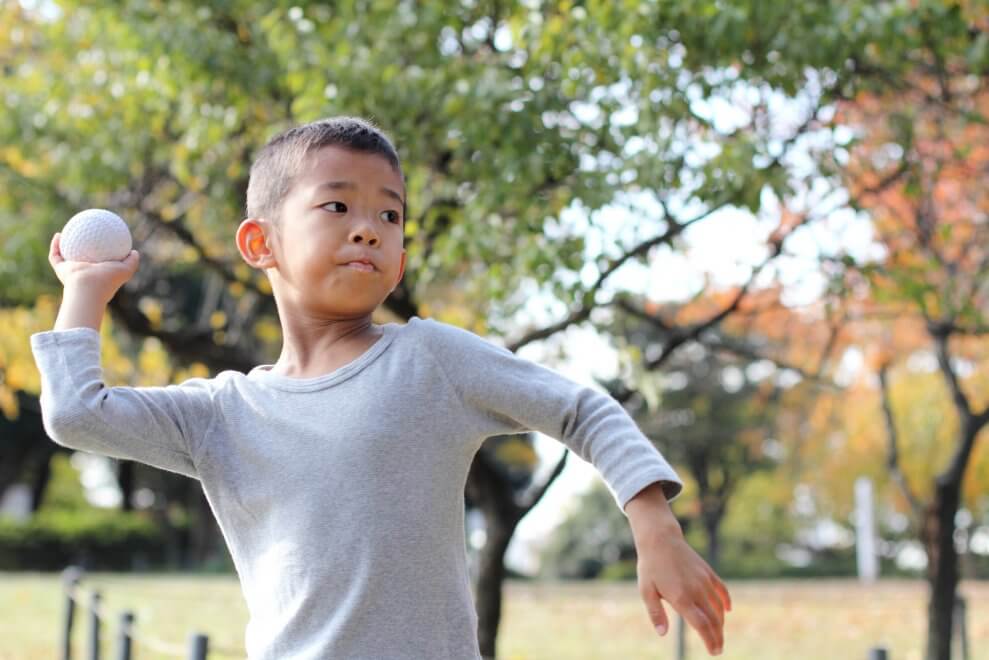One developmental milestone for early childhood in the physical domain is the refinement of running, jumping, and throwing. These gross-motor skills are very important for the physical health and performance of a child. Parents can support children in developing these skills by doing physical activity with them and showing them how to run, jump, and throw correctly. The more children do something, the more they can improve and grow. Parents will know a child has reached this milestone by seeing how balanced and controlled the child is while performing these activities. If the child is engaging in arm, leg, and trunk rotation while throwing and simultaneously shifting weight to their rear foot, they have advanced in throwing. The parent can also see that running and jumping have advanced when it is smooth and the speed gains to 12 feet per second.
Another developmental milestone in the cognitive domain is using script to recall familiar events. Script is a general description of an occurrence. As children get older, they can communicate and memorize past events in order to recall what happened previously. This becomes clearer and more advanced as language and cognitive development occurs. Parents can help children reach this milestone by continuously describing what is going on around them. This verbal interaction with the child allows them to grow in understanding and to observe circumstances repetitively. Events will become familiar to children and they will be able to predict what is going to happen. A parent can see that a child has reached this milestone when they are able to tell stories of previous events and can predict what may happen next when engaging in a familiar event.
A third developmental milestone in early childhood that supports the social/emotional domain is improved social problem solving skills. Social problem solving includes preventing or resolving issues in order to maintain acceptable and beneficial behavior. Learning how to problem solve in a healthy way is crucial in social development. Parents can support children in this milestone by intervening when social issues arise. They can guide children in resolving a situation in order to benefit all individuals involved. Parents can also be models to children and show in their own actions how to resolve problems in a beneficial way. This will affect the child and how they react to problems in their life. Parents can see that this milestone is reached by how their child interacts with other children and how they solve problems. If the child relies on persuasion, compromise, alternate strategies, or new goals to resolve issues, they have reached this milestone.
